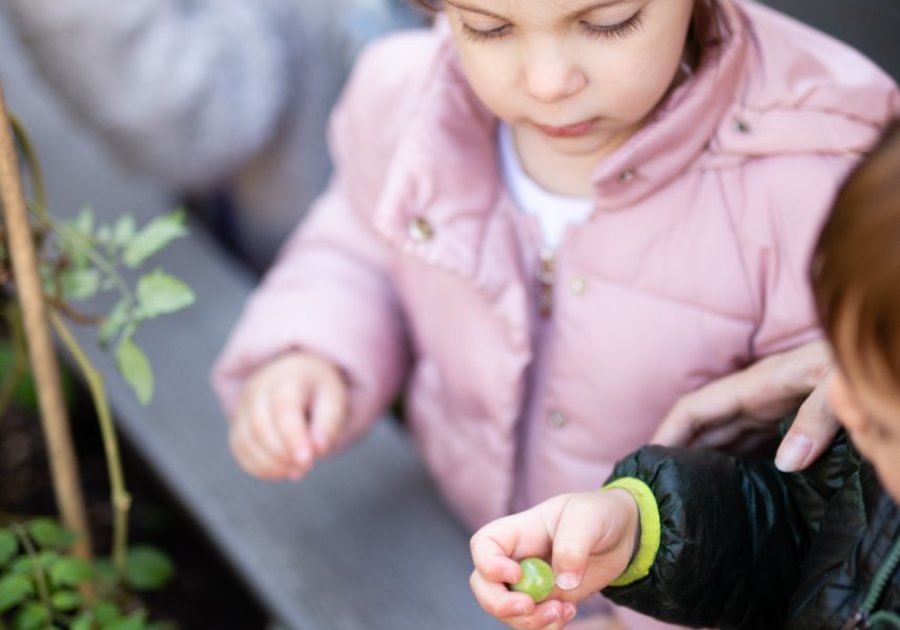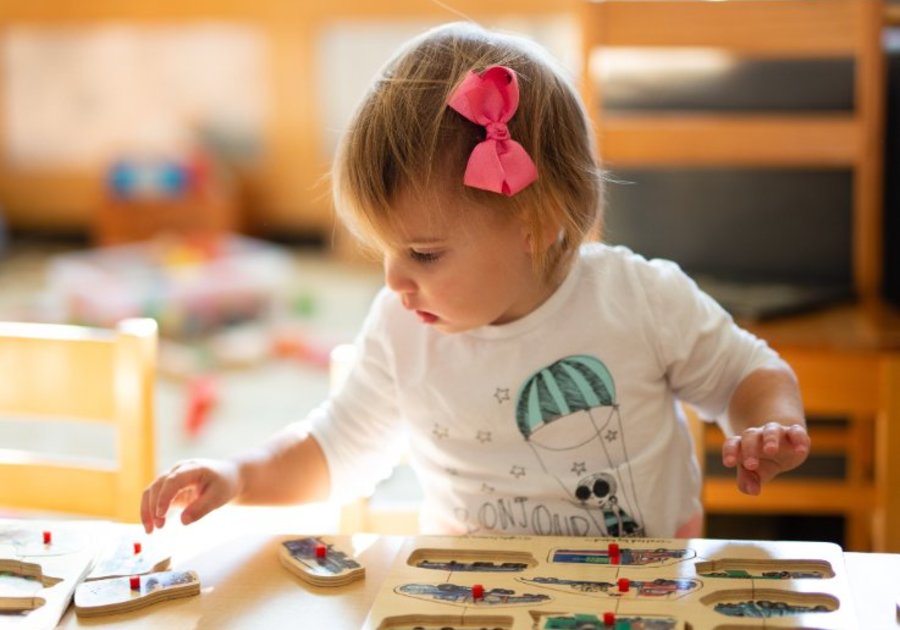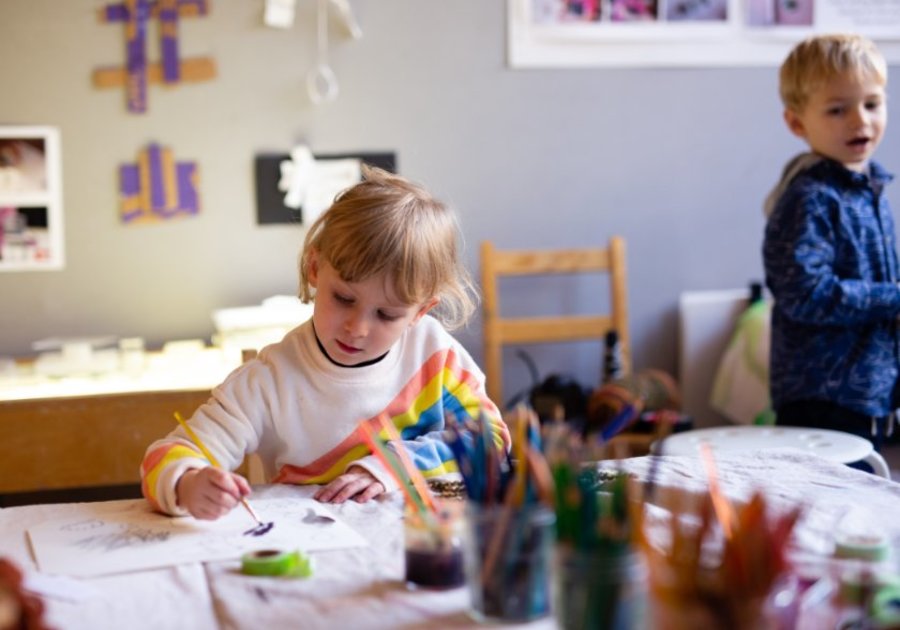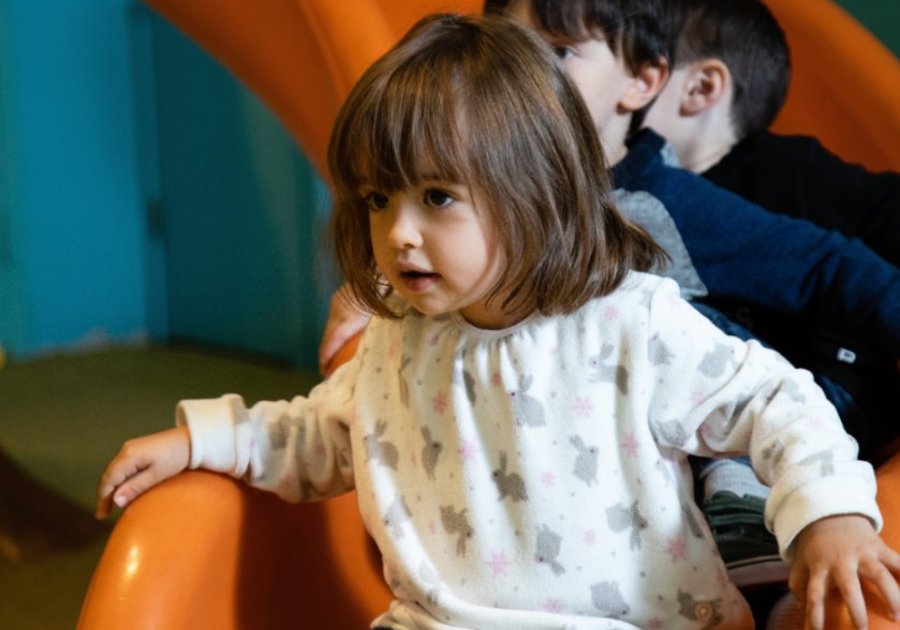When schools began to reopen following the closures from the pandemic, the media focused on the potential academic losses that would occur due to missed schooling. But what has become clear after a year of repeated closures and returning to remote schooling is that the impact on academics is the last thing to worry about. It’s obvious that children have suffered from the lack of social interaction, group learning and emotional contact with non-family members. This was certainly clear to all parents and educators of children ages two to five.
Early childhood centers were the first to reopen the spring/summer of 2020. On the one hand, parents needed childcare in order to work, but, more importantly, human interaction plays an enormous role in healthy brain development. Young children need to interact with others and have opportunities for dialogue in order to grow.
Our children were absolutely brimming with joy when they could return to school during the 2021 school year. “Our school is special because everyone can be together,” one four-year-old shared with his teacher. “I’m happy at school because I get to play with my friends,” another child agreed.
Despite the many restrictions that the pandemic imposed upon us - wearing masks, staying in small groups, absence of parents in the school - the children thrived. Just by being together with each other and their educators, I saw the delight return to their eyes as they developed new friendships and formed community.
Still, in the face of so many unknowns - and so much fear and anxiety - there were plenty of families who chose to keep their young children at home. But this year, many of those children have returned to school.
We are so happy to have them back; however, it’s clear that they are at a disadvantage when it comes to social and emotional development. For example, some children who missed out on a year of learning how to take turns and use their words may instead resort to grabbing or shoving. And there’s trauma to unpack: I’ve seen children appear fearful when others get too close to them, a remnant of the instruction from grown-ups to socially distance when outside their homes.
These children have skipped an entire school year of learning with and from their peers. They need extra support from adults to scaffold their interactions with others. Luckily, young children are resilient and are capable of so much growth. I know that these children are benefitting tremendously from being in school surrounded by their social peers.
There’s plenty of research that affirms the importance of the first five years in overall human development. Each year is crucial, with children’s brains creating millions of new neural connections in the first few years of life. Harvard University’s Center on the Developing Child tells us: “Emotional well-being and social competence provide a strong foundation for emerging cognitive abilities, and together they are the bricks and mortar that comprise the foundation of human development.”
Remote learning simply cannot provide the opportunity for children to build their social competence and expand their emotional intelligence. They need to be in contact with age-appropriate peers who will motivate and challenge their ideas in ways that adults or older children cannot.
Obviously, the pandemic is not over - and children under five are not yet eligible to be vaccinated against COVID-19, but their healthy development depends on their ability to interact with others. I urge all parents: enroll your children in a high-quality early childhood group environment. Your children’s futures - and our future as a society - depend on their developing healthy social emotional skills that will ensure their lifelong success.
Miriam Kalmar is the director of the Early Childhood Center at Stephen Wise Free Synagogue on New York’s Upper West Side. The ECC provides children 12 months to five years with a nurturing and stimulating environment inspired by the world-renowned schools of Reggio Emilia, Italy, which value children as capable, strong, and rich with wonder and knowledge.






